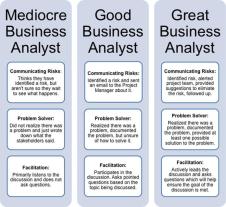How to make a marketing plan for small business?
Creating a marketing plan for a small business involves several key steps to outline strategies that align with business goals and effectively reach the target audience. Here's a structured approach:
1. Understand Your Business and Market:
Define Your Business: Outline your business objectives, unique selling proposition (USP), target market, and competition.
Market Research: Gather data on your target audience, industry trends, consumer behavior, and competitors. Identify gaps and opportunities.
2. Set Clear Marketing Objectives:
Specific Goals: Establish measurable and achievable marketing objectives. For instance, increasing brand awareness, generating leads, or boosting sales by a certain percentage.
SMART Goals: Ensure your objectives are Specific, Measurable, Achievable, Relevant, and Time-bound.
3. Identify Target Audience and Positioning:
Customer Profiles: Create detailed buyer personas based on demographics, behaviors, needs, and preferences.
Value Proposition: Define what sets your business apart and how you want to be perceived in the market.
4. Develop Strategies and Tactics:
Marketing Mix: Outline strategies for product, price, place (distribution), and promotion.
Marketing Channels: Determine the most effective channels to reach your audience (social media, website, email marketing, advertising, etc.).
Content Strategy: Plan the type of content (blog posts, videos, infographics) to engage your audience and deliver value.
5. Budget Allocation and Resources:
Budgeting: Allocate resources for various marketing activities based on their importance and potential ROI.
In-House or Outsourcing: Decide whether certain tasks will be handled internally or outsourced to specialists or agencies.
6. Implementation and Execution:
Action Plan: Create a timeline with specific tasks, responsibilities, and deadlines.
Monitoring and Adjustments: Continuously monitor the performance of marketing campaigns and be ready to make adjustments based on analytics and feedback.
7. Evaluation and Measurement:
KPIs: Define Key Performance Indicators (KPIs) aligned with your objectives (e.g., website traffic, conversion rates, social media engagement).
Analytics Tools: Use tools like Google Analytics, social media insights, or CRM data to measure the effectiveness of your strategies.
8. Review and Adapt:
Regular Review: Schedule periodic reviews of your marketing plan to assess what's working, what needs improvement, and adapt strategies accordingly.
Flexibility: Stay adaptable to market changes, consumer behavior, and new opportunities.
Creating a marketing plan is an iterative process, and flexibility is key. Continuously refine your strategies based on insights and changing market dynamics to drive sustained business growth.
Creating an effective marketing plan tailored for a small business.
Creating an Effective Marketing Plan for Your Small Business
Developing a solid marketing plan is crucial for any small business aiming to attract customers, grow its brand, and achieve success. Here's a guide to help you create a tailored plan for your specific business:
1. Define Your Goals and Objectives:
- Start with your overall business goals. What do you want to achieve with your marketing efforts? Do you want to increase brand awareness, generate leads, boost sales, or build customer loyalty?
- Set specific and measurable objectives. Instead of saying "increase brand awareness," quantify it with a target percentage or number of new followers. This helps you track progress and measure the impact of your marketing campaigns.
2. Know Your Target Audience:
- Identify your ideal customer. Who are you trying to reach with your marketing? Understanding their demographics, interests, and pain points is key to crafting effective messaging.
- Conduct market research. Gather data through surveys, competitor analysis, and social media listening to learn more about your target audience.
3. Develop Your Brand Identity:
- Define your brand values and personality. What makes your business unique? What values do you want to communicate to your audience?
- Create a consistent brand voice and visual identity. This includes your logo, colors, fonts, and messaging. Consistency across all marketing channels is key to building brand recognition.
4. Choose Your Marketing Channels:
- There are various marketing channels available, both online and offline. Consider which channels are best suited to reach your target audience and achieve your goals. Some options include:
- Website and social media: Build a strong online presence and engage with your audience through content marketing, social media advertising, and email marketing.
- Search engine optimization (SEO): Improve your website's ranking in search engine results pages (SERPs) to increase organic traffic.
- Pay-per-click (PPC) advertising: Use targeted ads on search engines and social media platforms to reach a wider audience.
- Public relations and influencer marketing: Build relationships with journalists and influencers to generate positive publicity and reach new audiences.
- Networking and events: Participate in industry events and conferences to connect with potential customers and partners.
5. Create Your Marketing Budget:
- Allocate your resources based on your goals and priorities. Determine how much you can realistically invest in marketing each month or year.
- Track your marketing expenses and measure your return on investment (ROI). This helps you make informed decisions about your marketing budget and ensure you're getting the most out of your investment.
6. Implement and Monitor Your Marketing Plan:
- Develop a detailed marketing calendar to plan and schedule your activities. This helps ensure consistency and prevents you from missing important deadlines.
- Track your progress and analyze the results of your marketing campaigns. Use data and insights to refine your strategies and make adjustments as needed.
7. Be Flexible and Adapt:
- The marketing landscape is constantly evolving. Be prepared to adapt your plan as needed to reflect changes in technology, consumer behavior, and industry trends.
- Always be open to trying new things and experimenting with different marketing tactics. This is the best way to discover what works best for your business and stay ahead of the competition.
Additional Resources:
- Small Business Administration (SBA): https://www.sba.gov/
- SCORE: https://www.score.org/
- HubSpot: https://www.hubspot.com/
- WordStream: https://www.wordstream.com/
Creating a successful marketing plan takes time, effort, and ongoing adjustments. However, by following these steps and utilizing available resources, you can develop a tailored plan that helps your small business reach its full potential. Remember to focus on your specific goals, understand your audience, and adapt to change to achieve sustainable marketing success.












